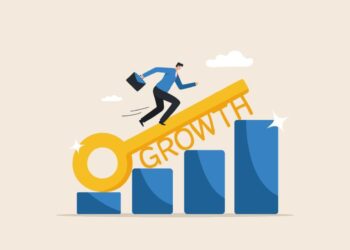In the modern digital landscape, mobile applications have become indispensable, permeating nearly every facet of our daily lives, from communication and entertainment to productivity and commerce. This pervasive influence has propelled app development into one of the most dynamic, in-demand, and financially rewarding career paths globally. However, crafting successful applications that resonate with users and stand out in a crowded marketplace requires far more than just coding knowledge. It demands a sophisticated blend of technical mastery, creative problem-solving, strategic thinking, and continuous learning. This comprehensive article delves deep into the multifaceted array of essential skills crucial for app development success, exploring not only the foundational technical competencies but also the critical soft skills, business acumen, and evolving specializations necessary to thrive in this rapidly innovating industry. For anyone aspiring to build impactful applications and navigate a lucrative career, understanding and cultivating these diverse skills is paramount.
The Foundations of App Development

At its core, app development is the art and science of creating software applications that run on mobile devices, such as smartphones and tablets. It involves a systematic process from conception to deployment, each stage requiring specific proficiencies.
A. Understanding Mobile Ecosystems: A fundamental starting point is comprehending the distinct characteristics of the major mobile operating systems and their respective app stores.
1. iOS (Apple): Known for its closed ecosystem, strict design guidelines, and focus on user experience. Development primarily uses Swift or Objective-C in Xcode.
2. Android (Google): Characterized by its open-source nature, vast device fragmentation, and flexibility. Development typically uses Kotlin or Java in Android Studio.
3. Cross-Platform Frameworks: Solutions like React Native, Flutter, and Xamarin allow developers to write code once and deploy it across both iOS and Android, offering efficiency but sometimes with performance trade-offs.
B. Programming Languages and Frameworks: Proficiency in at least one, and ideally multiple, programming languages and their associated frameworks is non-negotiable.
1. Native Development:
* Swift/Objective-C: For iOS app development, Swift is the modern, preferred language, known for its safety and speed.
* Kotlin/Java: For Android app development, Kotlin is the contemporary, officially recommended language due to its conciseness and interoperability.
2. Cross-Platform Development:
* JavaScript/TypeScript (React Native): Leveraging web development skills to build native mobile apps.
* Dart (Flutter): Google’s UI toolkit for building natively compiled applications for mobile, web, and desktop from a single codebase.
* C# (Xamarin): A Microsoft-owned framework for building cross-platform apps with C#.
3. Backend Development (for complex apps): Languages like Python (with Django/Flask), Node.js (JavaScript), Ruby (with Rails), or Go for server-side logic, databases, and APIs.
C. Core Development Concepts: Beyond specific languages, a solid grasp of universal programming principles is vital.
1. Object-Oriented Programming (OOP): Understanding concepts like classes, objects, inheritance, polymorphism, and encapsulation.
2. Data Structures and Algorithms: Knowledge of efficient data organization (arrays, linked lists, trees) and algorithmic thinking for optimizing app performance and problem-solving.
3. Version Control (Git): Essential for collaborative development, tracking changes, and managing different code versions.
4. API Integration: Ability to connect apps to external services and databases via Application Programming Interfaces (APIs).
5. Database Management: Familiarity with databases (e.g., SQLite for local storage, Firebase, MongoDB, PostgreSQL for cloud) and querying languages (SQL).
D. Integrated Development Environments (IDEs): Expertise in using the primary tools for writing, debugging, and testing code.
1. Xcode: Apple’s IDE for iOS and macOS development.
2. Android Studio: Google’s official IDE for Android development.
3. VS Code: A popular, lightweight, and versatile code editor often used for cross-platform and backend development.
The Artistic and User-Centric Dimension
An app’s success is not solely determined by its functionality; its usability, aesthetic appeal, and intuitive interface are equally critical. This is where design skills come into play.
A. User Interface (UI) Design: This focuses on the visual and interactive elements of an app that users directly interact with.
1. Layout and Visual Hierarchy: Understanding how to arrange elements on a screen for clarity and ease of navigation.
2. Color Theory and Typography: Knowledge of how colors and fonts influence user perception and readability.
3. Iconography and Imagery: Creating or selecting appropriate visual assets that communicate effectively and enhance aesthetics.
4. Branding Consistency: Ensuring the app’s visual design aligns with the overall brand identity.
B. User Experience (UX) Design: This focuses on the overall feeling of the app and how easily and enjoyably users can accomplish their goals. It’s about the entire journey.
1. User Research: Conducting interviews, surveys, and usability testing to understand user needs, pain points, and behaviors.
2. Information Architecture: Organizing and structuring content within the app in a logical and intuitive manner.
3. Wireframing and Prototyping: Creating low-fidelity (wireframes) and high-fidelity (interactive prototypes) mockups to visualize and test app flows before development.
4. Usability Testing: Observing real users interacting with the app to identify areas for improvement.
5. Accessibility (A11y): Designing apps that are usable by individuals with disabilities (e.g., screen reader compatibility, sufficient color contrast).
C. Design Tools Proficiency: Familiarity with industry-standard design software.
1. Figma: A popular cloud-based design tool for UI/UX, collaboration, and prototyping.
2. Sketch: A vector graphics editor primarily for macOS, widely used for UI design.
3. Adobe XD: Part of the Adobe Creative Suite, offering robust features for UI/UX design and prototyping.
4. Blender/Maya (for 3D elements): For apps incorporating 3D graphics or augmented reality.
Business and Soft Skills
Truly successful app development extends beyond technical and design expertise, requiring a strong foundation in business understanding and interpersonal communication.
A. Problem-Solving and Critical Thinking:
1. Analytical Mindset: Ability to break down complex problems into manageable components and devise logical solutions.
2. Debugging Prowess: Skill in identifying, isolating, and resolving errors in code or functionality.
3. Creative Solutions: Capacity to think outside the box and innovate in the face of technical or design challenges.
B. Communication and Collaboration:
1. Active Listening: Understanding client requirements, user feedback, and team discussions thoroughly.
2. Clear Documentation: Ability to write clear, concise code comments, technical specifications, and user guides.
3. Teamwork: Effectively collaborating with designers, other developers, project managers, and stakeholders.
4. Presentation Skills: Articulating ideas, project progress, and solutions clearly to both technical and non-technical audiences.
C. Project Management and Organization:
1. Agile Methodologies: Familiarity with Scrum or Kanban for iterative development, task management, and team coordination.
2. Time Management: Efficiently allocating time to different tasks, meeting deadlines, and balancing multiple priorities.
3. Resource Allocation: Understanding how to manage development resources effectively.
4. Risk Management: Identifying potential issues and planning for contingencies.
D. Business Acumen and Market Understanding:
1. Market Research: Ability to identify target audiences, analyze competitors, and understand market trends.
2. Monetization Strategies: Knowledge of different app monetization models (e.g., in-app purchases, subscriptions, advertising, premium versions).
3. Marketing and User Acquisition: Understanding basic principles of app store optimization (ASO) and user acquisition strategies.
4. Legal and Compliance: Awareness of data privacy regulations (GDPR, CCPA), intellectual property, and app store guidelines.
5. Financial Literacy: Basic understanding of budgeting, revenue forecasting, and profitability for app projects.
E. Adaptability and Continuous Learning:
1. Staying Updated: The mobile technology landscape evolves rapidly; a commitment to continuously learning new languages, frameworks, tools, and industry trends is essential.
2. Resilience: The ability to persevere through debugging frustrations, project setbacks, and critical feedback.
3. Problem-Solving from Feedback: Willingness to iterate and improve based on user data and criticism.
The Future of App Development

As the app development landscape matures, various specializations and emerging technologies are creating new demands for specific skill sets.
A. Artificial Intelligence (AI) and Machine Learning (ML) Integration:
1. AI/ML Frameworks: Experience with TensorFlow Lite, Core ML, PyTorch Mobile for integrating AI models into apps (e.g., image recognition, natural language processing, predictive analytics).
2. Data Science Fundamentals: Understanding how to prepare, analyze, and interpret data to train and deploy AI models.
3. Ethical AI: Awareness of the ethical implications and biases in AI systems and designing for fairness and transparency.
B. Augmented Reality (AR) and Virtual Reality (VR) Development:
1. AR/VR SDKs: Proficiency with ARKit (iOS), ARCore (Android), Unity, or Unreal Engine for building immersive experiences.
2. 3D Graphics and Spatial Computing: Skills in creating and manipulating 3D models, textures, and understanding spatial interactions.
3. User Experience for Immersive Environments: Designing intuitive and comfortable interactions within AR/VR spaces.
C. Blockchain and Web3 Integration:
1. Smart Contract Development: Knowledge of languages like Solidity for building decentralized applications (dApps) on blockchain platforms.
2. Cryptocurrency Wallets: Understanding how to integrate secure wallet functionalities into apps.
3. Decentralized Technologies: Grasping concepts of NFTs, decentralized autonomous organizations (DAOs), and tokenomics for Web3 apps.
D. Internet of Things (IoT) Connectivity:
1. Bluetooth Low Energy (BLE): Ability to connect mobile apps with smart devices, wearables, and home automation systems.
2. Device Communication Protocols: Understanding how different IoT devices communicate and integrate with mobile platforms.
3. Security for IoT: Awareness of the specific security challenges related to connected devices.
E. Accessibility (A11y) Expertise:
1. Inclusive Design Principles: Deep understanding of designing apps that are usable by people with diverse abilities (visual, auditory, motor, cognitive impairments).
2. Assistive Technologies: Familiarity with screen readers, voice control, and other assistive technologies.
3. Accessibility Guidelines: Knowledge of WCAG (Web Content Accessibility Guidelines) and platform-specific accessibility APIs.
Impact and Future Outlook
The demand for skilled app developers will only continue to grow as mobile technology becomes even more integrated into global economies and daily lives. The impact of their work is profound and far-reaching.
A. Democratization of Services: Apps make complex services (banking, healthcare, education) more accessible and convenient to a wider global population, often bypassing traditional infrastructure limitations.
B. Economic Growth and Job Creation: The app economy is a massive driver of economic activity, creating millions of jobs directly in development, and indirectly in related industries like marketing, content creation, and IT support.
C. Innovation Across Industries: Apps are catalysts for innovation in every sector, from retail and logistics to agriculture and government, introducing new business models and enhancing efficiency.
D. Personalization and Customization: The ability to tailor experiences to individual user preferences through apps is setting new standards for customer engagement and satisfaction across all digital products.
E. Empowering Individuals and Small Businesses: Apps provide powerful tools for entrepreneurs, small businesses, and individuals to connect with customers, manage operations, and scale their ventures with unprecedented ease.
Cultivating App Development Excellence
For individuals aspiring to master app development, a strategic approach to skill acquisition and continuous growth is essential.
A. Start with Fundamentals: Build a strong base in core programming concepts, data structures, and algorithms before diving into complex frameworks.
B. Choose a Platform (or Framework) and Go Deep: While versatility is good, become truly proficient in at least one native platform (iOS or Android) or a cross-platform framework (Flutter, React Native) first.
C. Build Projects, Build a Portfolio: Practical experience is invaluable. Create personal projects, contribute to open-source initiatives, and participate in hackathons. A strong portfolio showcasing your work is often your best resume.
D. Prioritize User Experience (UX): Always put the user first. A beautiful, functional app is useless if it’s not intuitive and enjoyable to use.
E. Embrace Continuous Learning: The technology landscape changes rapidly. Dedicate time to staying updated on new languages, frameworks, tools, and industry trends through online courses, blogs, and communities.
F. Network and Collaborate: Connect with other developers, designers, and industry professionals. Join online forums, local meetups, and attend conferences. Collaboration enhances learning and opens doors.
G. Learn Business Fundamentals: Understand the market, monetization strategies, and the overall business context of the apps you build.
Conclusion
The journey to app development success is a dynamic one, requiring a blend of technical precision, creative flair, and strategic business understanding. However, for those willing to commit to continuous learning and embrace the rapid evolution of technology, the opportunities are boundless. By mastering this diverse skill set, developers can not only build innovative and impactful applications but also carve out a highly rewarding and future-proof career at the very forefront of the digital revolution. The screen is your canvas, and the world is waiting for your next creation.










